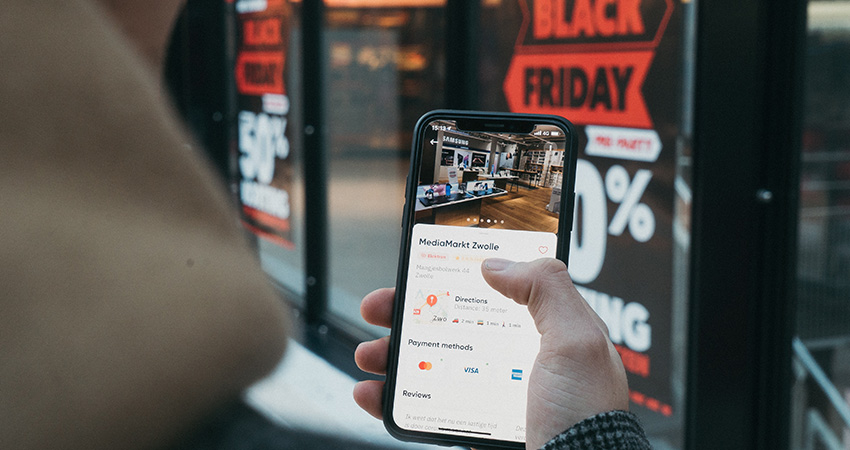Black Friday is looking mighty grim (credit: CardMapr.nl on Unsplash)
As COVID-19 restrictions tighten once again and cases rise, consumers will be staying away from stores in droves on Black Friday, with CommerceHub reporting 70% of its survey respondents would not be venturing out for deals the day after Thanksgiving.
“All year we’ve seen the acceleration of ecommerce, with some of the bigger retailers like Home Depot, Lowe’s, Best Buy and Costco up either high double digits or even triple digits (in online sales),” said Tom Barone, chief revenue officer for CommerceHub. “So, the idea of people standing in line with masks on, fighting for a big-screen TV at Walmart, is highly unlikely.”
About the same number of survey respondents, 71%, said they planned to shop online during Black Friday and Cyber Monday, holding out for better deals until then despite massive efforts at early promotions and discounts to pull demand forward in a crazy year.
“Retailers tried very hard with their advertising to convince consumers, don’t wait, buy now,” Barone said. “I’ve seen a bunch of emails about expecting delays and cutoffs coming early. Out of concern from a shipping perspective, they’ve tried to change the behavior.”
In a definite sign of the times, 83% of 2020 respondents told CommerceHub they planned to do more than half of their holiday shopping online, up from 59% in 2019.
While Amazon claimed third-party sales on Prime Day in mid-October hit $3.5 billion over the two days, up 60% from 2019, consumers told CommerceHub they were underwhelmed by the event. Fifty percent of them said they skipped Prime Day this year because the deals weren’t enticing enough, and nearly 40% said it was too early in the calendar for holiday shopping.
There was a generational difference in terms of consumer confidence, CommerceHub found. Fifty-five percent of Gen Z respondents said they planned to spend less this holiday season due to economic uncertainty, a figure that rose successively for millennials (60%), Gen X (70%) and boomers (75%).
CommerceHub surveyed more than 2,500 consumers between the ages of 18-74 on Oct. 22 and 23, 2020.

